In recent weeks, Atletico Madrid staff have felt an old fire in Diego Simeone. He has spent almost every spare moment scrutinizing Borussia Dortmund, looking for the otherwise invisible holes in Edin Terzic's team.
It's that familiar power and immersion that we haven't seen in full for a while, probably because it takes a real Champions League match to bring it out. This is accompanied by stirring old tension around the club, but it also comes from something new - or at least refreshing.
This is only the fourth time Atletico and Dortmund have come together, and only the second this millennium. The latter meeting only took place in the group stage of 2018/19, despite the two clubs having been present in the Champions League ever since.
It certainly stands out among the other quarter-finals. Arsenal and Bayern Munich have played together five times in twelve years, despite a seven-year gap. Barcelona and Paris Saint-Germain will meet for the sixth time in the same period, making it a total of twelve matches. The worst and most intense is that Real Madrid and Manchester City meet for the fourth time in five years.
While such intimacy between the English and Spanish champions would typically reinforce numerous storylines surrounding the game - especially as it could ultimately be seen as 'the real final' - the problem is that we are all too familiar with it. We've seen and heard it all before. No one needs to say anything about Pep Guardiola's relationship with Real Madrid. City, meanwhile, took great revenge last season.
That's not to say it won't be good football, but such replays fuel the growing debate about the boringness of the Champions League. This is a much bigger problem than abolishing the away goals rule. It has been one of the problems of the modern Champions League, with too many of the same teams, characters, matches and even cities. That almost seems to go against the spirit of European football, which has historically been about the new and the different, but also about great voyages of discovery.
The story continues
The competition could use more big tires that have a sense of the unknown about them.
And yet that points to a new twist in the Atletico-Dortmund match, which will create even greater excitement.
The fame in the other three games is largely because they are clubs that are generally always in this phase and should be thinking about winning. Arsenal are an exception this season in that they are back in the quarter-finals for the first time since 2010, but it hardly feels like a one-off. They are here to stay, as evidenced by the fact that they are almost considered second favorites just because they are the next Premier League team behind City. There is increased financial power there.
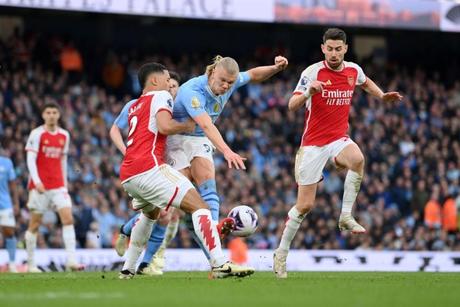
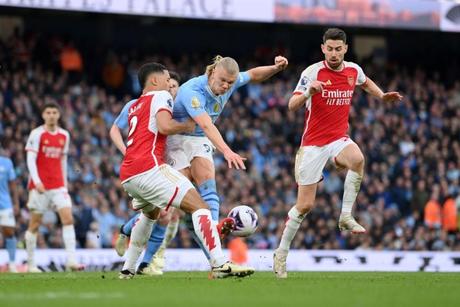
None of this is the case for Dortmund or Atletico, apart from the long wait. Dortmund have not reached the semi-finals since 2012/2013. Atlético has not been this far since 2016/2017.
That gap is all the greater because it was Atletico's last semi-final that arguably ended an era. In the half decade before, both clubs had established themselves as the continent's great newcomers. They were the great opposing forces, counter-attacking and counter-attacking appropriately.
Both showed how to defy the economic realities of the game. Dortmund had done more than just disrupt Bayern's dominance in Germany. They had become the only other team to win two consecutive Bundesliga titles in sixteen years. It was all done by an exciting young team, led by Jurgen Klopp.
Simeone's Atlético weren't as exciting, but they had an admirable tenacity that saw them become the first club in a decade, alongside Real Madrid and Barcelona, to win La Liga. In the context of what the match had become, these were authentically impressive upsets, the modern-day equivalents of Jose Mourinho's Champions League with Porto and perhaps even Sir Alex Ferguson's Scottish titles with Aberdeen. The performances secured the legacies of both Simeone and Klopp, while placing them in that group of elite managers.
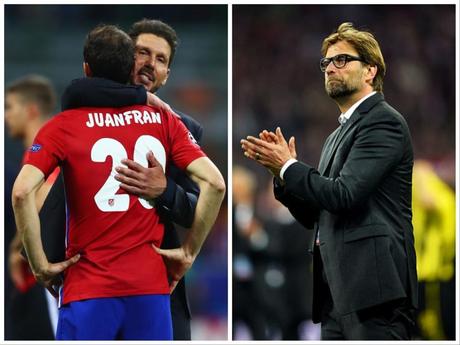
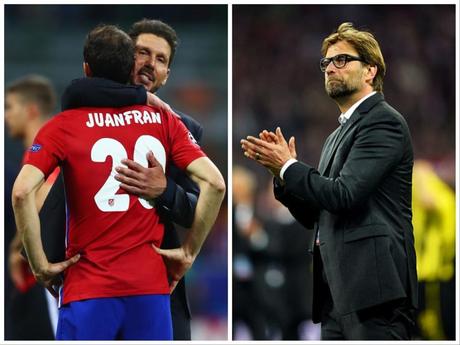
Those legacies could have been even greater, as both came within inches of going full distance in the Champions League. Dortmund reached the 2013 final but were beaten by an 89th-minute winner. Atletico were on the verge of winning the 2014 final but conceded an equalizer in the 93rd minute and then collapsed. Two years later they were defeated on penalties at the same stage.
The more relevant detail is, for a number of reasons, that it was their greatest rivals who subjected them to this pain. Bayern defeated Dortmund through Arjen Robben's winner. Real Madrid equalized in 2014 through Sergio Ramos' header from a set piece, against Simeone. Atletico then lost the psychodrama of penalties in 2016, with their bigger rivals in Madrid obviously keeping their focus.
These were the worst ways to lose, to end their best modern eras. It wasn't even like they were spared the opposite scenarios where Bayern would beat Atletico or Madrid would beat Dortmund. Ironically, the opposite had happened in the run-up to those finals. Dortmund defeated Real Madrid in the 2012/2013 semi-final. Atletico defeated Bayern in the 2015/16 semi-final.
The fact that they had become so close almost illustrated a psychological difference that would culminate in a divide that was much more real.
It was no coincidence that the last semi-final was in 2017. It was a direct result of the actions of clubs like Bayern and especially Real Madrid. After Michel Platini was forced to resign as UEFA president in 2016, the biggest clubs used the vacuum to demand more power - and money. It was during this period that a system was agreed whereby 30 percent of the Champions League prize money would be distributed based on performance in the competition's final decade. Bonus points were even awarded for previous European trophies. This is still seen as an absolutely pivotal moment, which turned an open competition into a more closed situation and also influenced the turn to Super League.
Although both Dortmund and Atletico were invited to that ill-fated project, they would in fact have been junior partners. They now received much less money from their regular European performances. That is also where the twist lies in this game.
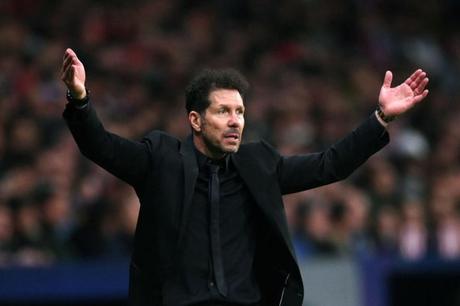
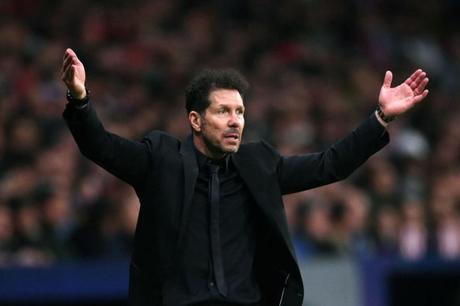
Dortmund and Atletico both feel they have the best chance of reaching a semi-final for the first time in this era, despite having teams far removed from their previous glory days. If only Klopp or Simeone's first big side had taken advantage of such draws, instead of fighting for almost everything. You could even end up with their first final since that era, as they are on the more forgiving side of the group.
There is considerable irony in that, but it also contains an element of throwback. It shows the luck of the draw that European football should be more about.
That's almost what gives the game even more energy. Both sense opportunities because of the other's problems. There is symmetry there. They are both hovering around fourth place and struggling to get back into the Champions League.
That's why Simeone has that familiar power. Everyone recognizes the opportunity this offers. There is certainly no sense of boredom in the Champions League at any of these clubs.
It could mean that the dynamic of this is closer to that of Internazionale-Atletico in the last 16, but that wouldn't be a bad thing. It was the best draw of the entire round.
It was what the Champions League needs more of, and that is this week's meeting in Madrid.
